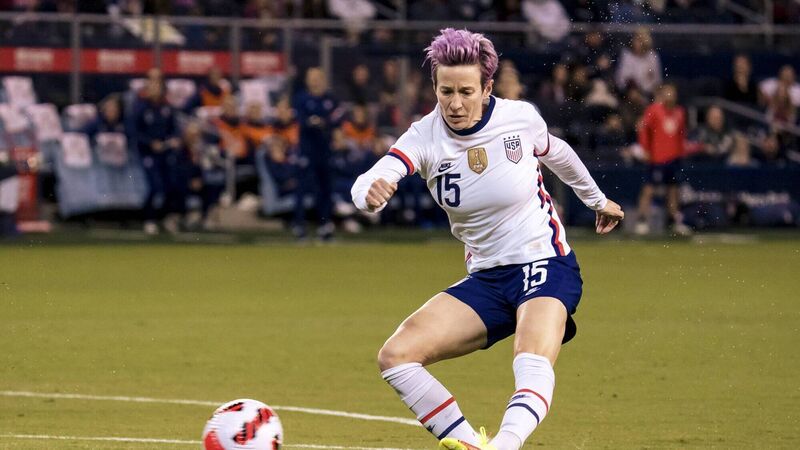Eimear Ryan: Time to listen to female players instead of trying to gaslight them

KANSAS CITY, KS - OCTOBER 21: Megan Rapinoe #15 of United States takes a shot at the Korea Republic goal during the first half of the International Friendly match at Children's Mercy Park on October 21, 2021 in Kansas City, Kansas. (Photo by Kyle Rivas/Getty Images)
It was gratifying last weekend that, on the eve of International Women’s Day, a jam-packed GAA schedule was bookended by two highly anticipated women’s games. First up was the Meath vs Dublin ladies football league clash, a rematch of last year’s All-Ireland final. After a slow start, the game lived up to its promise, with the last kick of the game sealing it for the Dubs. It’s exciting that this classic rivalry is being reincarnated in the women’s code before our very eyes.
Closing out the weekend of eight (8!) televised GAA matches was the 2021 All-Ireland camogie final between Sarsfields and Oulart the Ballagh. In what must have been a surreal turn of events for the players, it was their second time meeting in an All-Ireland final in three months – Oulart having dismantled Sarsfields in the 2020 decider, which only took place at the tail-end of 2021. Due to the vagaries of Covid and the fixture schedule, Oulart have the bad luck of enjoying perhaps the shortest victorious reign in All-Ireland memory; their constant goal threat, however, kept Sarsfields on edge throughout.









